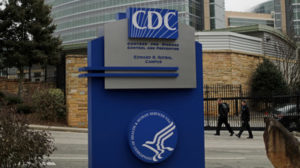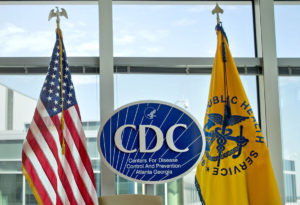By Dr. Linda Walden
As the current U.S. measles outbreak nears 1,000 cases, it seems impossible to deny the power of vaccines in preventing disease.
All it took to create America’s biggest measles spike in 25 years was a handful of communities where a high percentage of parents decided not to have children vaccinated.

Yet even amid this avoidable crisis, there’s a chance that the CDC will drop an important vaccine policy. Such a move would likely expose Americans to another potentially deadly set of illnesses that could be prevented through vaccinations.
The CDC’s Advisory Committee on Immunization Practices (ACIP) will meet June 26 in Atlanta and consider whether to continue recommending the pneumococcal vaccine for Americans 65 and older.
Keeping the ACIP vaccination recommendation in place is important. The recommendation increases the likelihood that health care providers will talk to patients about immunization, and it may even affect whether health plans cover immunizations.
If the CDC decides to take the ACIP recommendation away, vaccination rates could plummet.
As a health care provider, I am stumped as to why the CDC would consider such a decision. As a family physician, I have no doubt that it’s crucial for seniors 65 years of age and over to have pneumococcal vaccines, which help prevent pneumococcal pneumonia and other illnesses such as meningitis.

Each year in the United States, about 1 million people are hospitalized due to pneumonia, which causes fever, chest pain, shortness of breath — and for those over 65, leads to confusion, decreased alertness and even meningitis. Of those with pneumococcal pneumonia who are hospitalized each year, at least 50,000 die.
Like measles, pneumococcal disease is contagious. It’s spread from person to person by direct contact, contact with respiratory secretions like saliva or mucus from coughing.
And senior citizens aren’t the only ones at risk, meaning that a change in vaccination rates would affect other populations.
In addition to people with chronic health conditions, children younger than 2 years of age are at high risk to get critically ill from pneumococcal disease and can be exposed when older adults, such as grandparents, have the illness.
Loss of an ACIP recommendation also would create a health equity crisis. Already, a majority of adults who die from pneumococcal pneumonia are African-Americans, Hispanics and Asians who did not get their pneumococcal pneumonia vaccine. And the impact of ending the recommendation would be worse in states like Georgia, where so many rural counties lack hospital and physician access.
The bottom line is this: If we want a healthy nation, we must invest in preventive medicine — not just medicine aimed at people who are already sick. That means we need to do everything possible to raise vaccination rates, especially

for common and potentially deadly illnesses like pneumococcal disease.
As the measles outbreak illustrates, vaccines are the most effective way to prevent disease and keep vulnerable populations healthy.
Any efforts to de-emphasize the importance of vaccinations will only perpetuate a sick health care system, full of crowded emergency rooms and situations in which providers are forced to treat illnesses that could have been prevented in the first place.
Dr. Linda I. Walden, MD, FAAF, is a board member and immediate past president of the Georgia State Medical Association – the second-largest African-American state medical association in the United States – and is the National Medical Association Region III Chair.

